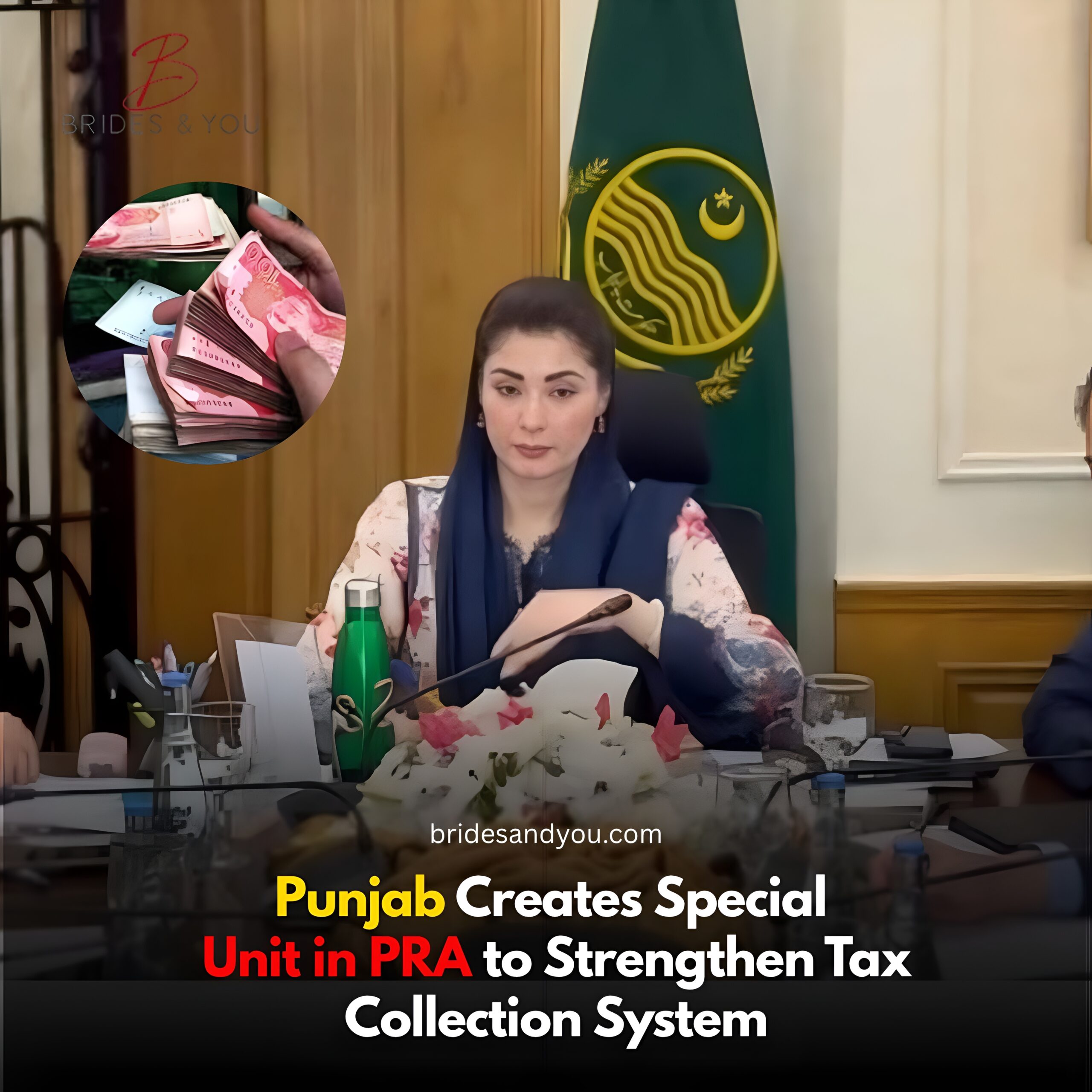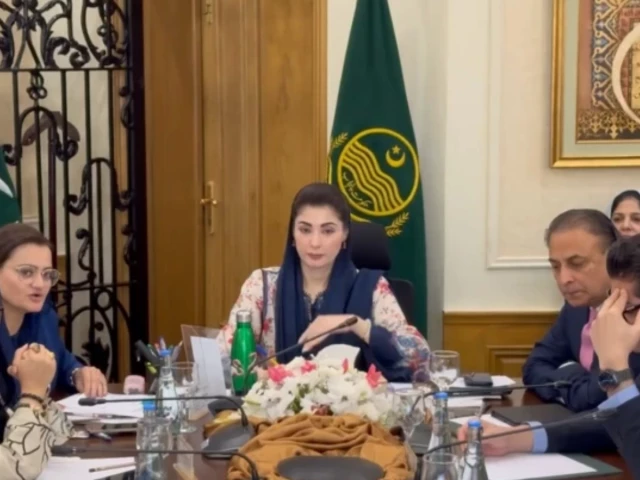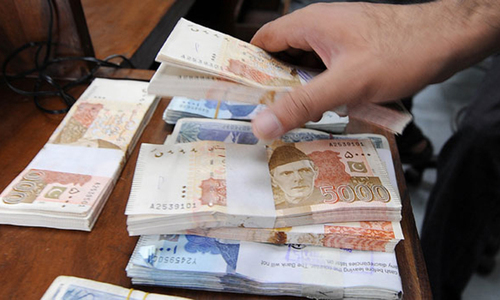Now Reading: Punjab Establishes Special Unit in PRA to Boost Tax Collection
-
01
Punjab Establishes Special Unit in PRA to Boost Tax Collection
Punjab Establishes Special Unit in PRA to Boost Tax Collection

In a major step to strengthen provincial revenue, the Punjab government has officially established a Special Unit within the Punjab Revenue Authority (PRA). This move aims to improve efficiency, transparency, and coverage in tax collection across the province.
The initiative reflects the government’s commitment to modernizing the revenue system and ensuring that tax operations contribute directly to Punjab’s economic stability and development.

Maryam Nawaz Leads Effort to Expand PRA Operations
Punjab Chief Minister Maryam Nawaz has taken a proactive approach to improve the province’s financial management. She announced the formation of a dedicated Special Unit within the PRA that will include factoriers, tax consultants, legal experts, and data analysts.
The government also approved the recruitment of 130 enforcement officers, who will play a vital role in monitoring compliance and identifying unregistered businesses. The deadline for expanding PRA’s functions to 30 districts has been set for October 30, marking a clear and time-bound goal for implementation.
Additional Deputy Commissioners General (ADCGs) will also take on additional responsibilities to support the authority’s extended functions, ensuring that operations remain smooth across all districts.
New Sectors to Be Added Under Punjab’s Revenue Framework
The Punjab government is currently reviewing the inclusion of 19 new sectors under the provincial tax net. This decision aims to broaden the tax base without putting extra pressure on already registered taxpayers.
Maryam Nawaz emphasized that “honest taxpayers must not be harassed”, directing officials to focus on bringing new and untaxed sectors into the system instead. This people-friendly approach ensures fairness and encourages voluntary compliance among businesses and individuals.
To make the process even more accessible, the PRA has launched a mobile application for taxpayers, allowing them to file taxes, check records, and communicate with the authority conveniently.

PRA’s Record-Breaking Revenue Growth in 2025
The Punjab Revenue Authority recorded remarkable progress during the first quarter of the fiscal year 2025-26. The authority collected Rs66.41 billion in taxes, showing a 28% increase from Rs51.98 billion during the same period last year.
Additionally, Rs1.7 billion was collected under the Punjab Infrastructure Development Cess, all achieved without introducing any new taxes or increasing existing rates.
This outstanding performance demonstrates the effectiveness of the government’s strategy to expand the tax base instead of burdening existing taxpayers.
Crackdown on Unregistered Businesses
To further strengthen compliance, PRA launched a comprehensive crackdown on unregistered service providers. Dedicated enforcement teams have been mobilized to:
- Identify and register unlisted businesses
- Conduct field surveys
- Issue immediate notices to defaulters
These measures aim to ensure that all sectors contribute fairly to the province’s development and that tax evasion is minimized.
The Role of PRA in Punjab’s Economic Development
Since the 18th Constitutional Amendment, provincial revenue authorities like the PRA have become essential to Pakistan’s financial structure. The Punjab Revenue Authority is responsible for collecting sales tax on services, which directly funds:
- Public development projects
- Infrastructure improvements
- Social welfare programs
The consistent rise in revenue collection enhances Punjab’s ability to fund essential services and create opportunities for sustainable economic growth.
Focus on Transparency and Trust
Chief Minister Maryam Nawaz has emphasized transparency and accountability in all stages of revenue collection. The PRA’s success is largely credited to:
- Expanding the tax net to untapped sectors
- Promoting tax awareness through outreach programs
- Building trust between taxpayers and authorities
Instead of using fear-based enforcement, the PRA has focused on education and facilitation, helping businesses understand the long-term benefits of becoming tax-compliant.
Conclusion
The establishment of the Special Unit within the Punjab Revenue Authority marks a new era in Punjab’s fiscal management. With a strong emphasis on transparency, innovation, and public trust, the province is moving toward a more stable and inclusive financial system.
This initiative not only strengthens the province’s tax collection network but also ensures that the benefits of increased revenue are invested back into public welfare, infrastructure, and development.
Punjab’s progress in 2025 clearly reflects a government that prioritizes efficiency, fairness, and digital transformation in its approach to governance.










